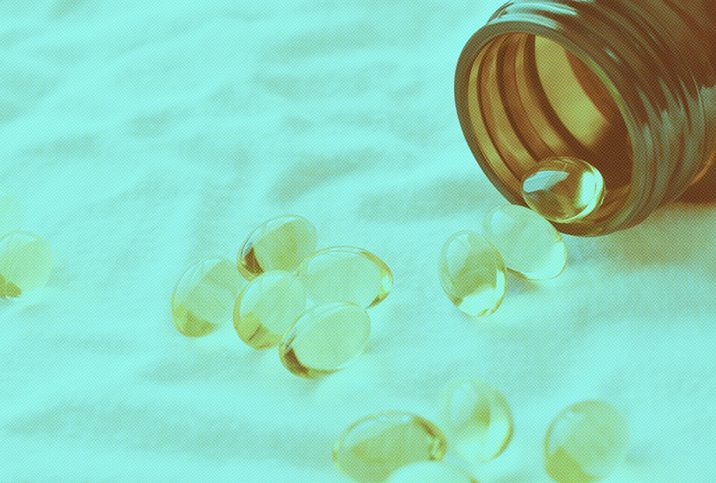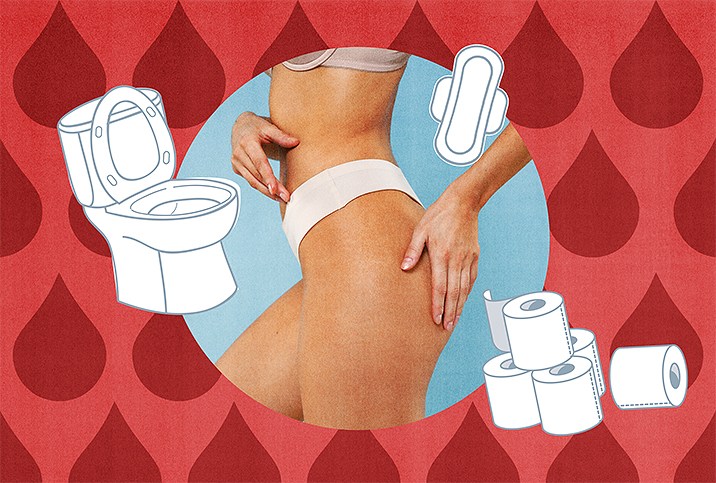Is Period Flu a Real Thing?

You've got the shivers, the fever and the body aches. It must be the flu. Or is it your period? It's true. As if the food cravings or mood swings weren’t enough, some women also experience flu-like symptoms before and during their period.
What is the period flu?
The period flu, as some people refer to it, includes a combination of symptoms categorized under premenstrual syndrome (PMS) that last no longer than two weeks. It typically feels the worst two days before your cycle starts.
"Period flu is a cluster of physical, emotional and psychological changes that occur prior to the menstrual cycle," said Nichole Butler-Mooyoung, M.D., a gynecologist at Weiss Memorial Hospital Women's Health Center in Chicago.
Doctors aren't entirely sure why these symptoms occur. They theorize it may have something to do with the body's response to changing hormone levels.
What causes period flu?
Before a woman begins her period, progesterone rises and peaks to prepare for menstruation. During this time (called the luteal phase), a woman's immune system decreases and continues to drop throughout her period as estrogen rises and progesterone lowers.
These fluctuations can cause PMS symptoms, such as body aches, headaches, mood swings and cramping.
At this time, when a woman's immune cells are lower due to a hormone imbalance, it is more difficult for their immune system to fight off a virus or bacteria. As a result, this can bring out a virus that's been brewing beneath the surface. Women may develop a cough, cold or throat ache.
When a woman's immune cells are lower due to a hormone imbalance, it is more difficult for their immune system to fight off a virus or bacteria.
Overall, these changes are typical for women during their menstrual periods.
"It is very common, and the changes that a woman experiences can range from mild to severe," Butler-Mooyoung explained. Your body is undergoing chemical and physical changes.
In addition to hormonal changes, Butler-Mooyoung said chemical changes in the brain could be a contributing factor to these symptoms. As serotonin levels fluctuate, this can lead to fatigue, nausea and gastrointestinal issues.
"The sudden drop in hormones during the time between ovulation and your period is the cause of PMS symptoms, including period flu," said Kelly Culwell, M.D., a board-certified OB-GYN in San Diego and nationally renowned women's health expert. "The rise in prostaglandins, which causes uterine cramping, can also cause abdominal cramps and diarrhea."
Once you enter the follicular phase (which starts on the first day of menstrual bleeding and ends with ovulation), estrogen and progesterone levels rise, and so does immunity.
Period flu symptoms
Roughly 80 percent of women experience the symptoms of PMS. Most experts will tell you that period flu is just a form of PMS. Butler-Mooyoung listed a few physical and emotional symptoms a woman might experience before her period starts.
Common PMS symptoms include:
- Depression
- Anxiety
- Irritability
- Joint pain
- Headache
- Abdominal bloating
- Fatigue
According to Culwell, some period flu symptoms that people normally associate with PMS include breast tenderness, irritability and fatigue.
"But period flu can also include joint pains, muscle aches, diarrhea and even a low-grade fever," she said. Period flu could even cause a sore throat.
Unlike influenza or the stomach flu, period flu isn’t contagious—unless you really are coming down with the flu virus or common cold but mistake it for period flu.
If symptoms are very severe, this may be a symptom of premenstrual dysphoric disorder (PMDD). Speak with your doctor to learn more.
How to manage period flu
From natural remedies to prescription medications, there are various ways to treat PMS, or period flu, symptoms.
Ways to help relieve period flu include:
- Try boosting your immune system with lifestyle changes, like eating a diet high in fruits and vegetables, sleeping eight hours a night and exercising regularly.
- Take over-the-counter pain relievers, such as ibuprofen.
- Try birth control pills. If you suffer from severe PMS that affects your daily life, hormonal birth control can help alleviate discomfort.
- Use a heating pad or hot water bottle to relieve cramps.
- Staying hydrated.
- Get a massage or try acupuncture.
- Do yoga or meditation.
The bottom line
If your pre-period symptoms are severe, consult a doctor to confirm the diagnosis and discuss treatment options. Women with severe symptoms may want to discuss taking selective serotonin reuptake inhibitors (SSRIs) or the combination birth control pill, which can help prevent or reduce certain PMS symptoms.
Don’t have a doctor? Giddy Telehealth takes the difficulty out of such a search. The easy-to-use online portal connects you to hundreds of high-quality healthcare professionals. Many offer same-day appointments or video consultations.


















